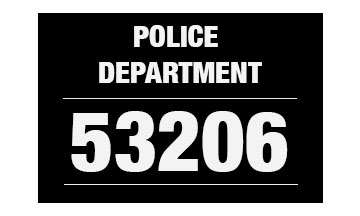‘Milwaukee 53206’
The film “Milwaukee 53206” showed the lives of some individuals living in the ZIP code with the highest rate of incarcerated African-American males in the United States. The film was selected in both the Atlanta Film Festival and St. Louis International Film Festival, as well as was the audience winner at the MKE Film Festival last year. It was shown on Thursday Nov. 16 at Doudna Hall. The documentary was presented by Psychology professor Becky Fernette.
“This project is an urgent call. It is a request in helping those who are committed to justice and freedom and ending this moral political catastrophe. This documentary introduces a problem that a large part of the country knows little about. Therefore, we hope it helps spark and direct conversation,” Fernette said.
The story focused on a family, the Walkers, who had been impacted by this. Barron Walker was sent to jail after robbing a bank. His wife, Beverly, spoke on the struggles she and her family have faced with him being gone. She talked about how their relationship started. They met when they were very young and grew up together. Barron was always getting in trouble, but Beverly always wanted to be with him. She described how when they were young, there was a shooting in the neighborhood, and he shielded her from the gunshots that were coming through her window.
Throughout the film, Barron was interviewed while he was still incarcerated. Barron’s sentence had been cut down due to good behavior, but it’s still taking a long time for him to get out of jail and on parole.
“What do I need to do to show Wisconsin I’m not a menace to society?” Barron said.
Dennis was a radio host who was also filmed for the documentary. Dennis spoke about how when he was younger he would get in trouble. He even got arrested once. Dennis now works in the community and often goes to the jail to speak to the incarcerated men.
Chad Wilson shared his story of just being released from jail and trying to find work. He was working on adjusting to new family life as he just had a daughter. Wilson has four children total. He went to an agency to speak with someone about what he could get off his record so it looks better when he applies for jobs, but there seemed to be nothing he could do.
“Chad Wilson said something really impressive to me. When he said, it’s kind of like being told you have cancer and you can’t get rid of it. And let’s add one more thing, it’s not that you can’t get rid of it but it’s your fault that you got it and someone’s not going to help you with it. We might have the capacity to help you but we’re not going to,” criminal justice professor Valerie Stackman said during the Q & A after the film.
Wilson spoke in depth on his past. When he was younger, his light drinking and smoking marijuana eventually turned into much more.
“I was the only one in my family to be a part of street life,” Wilson said.
Towards the end of the film, they showed Beverly Walker graduating from a program. Beverly was happy she had graduated but felt guilty showing any type of happiness knowing her husband was still struggling in jail. A couple days after, it was revealed in a phone call between Beverly and Barron that he had been an 11 month defer. This was not the news they wanted.
After the film, the Q & A held by Stackman was filled with many questions regarding the system and location of the documentary. Many audience members commented that they were from Milwaukee and did not realize how big of a problem this was.
Another question inquired on the sentencing and why it changes sometimes.
“People were mad people were only serving five or 10 years of their 50-year sentence or so,” said Stackman. “Part of it was the mantra of get tough on crime. Where people said, ‘we gave you 60 years so you’re going to serve 60 years.’”
Stackman describes the magic number being 85 percent of your sentence being time actually served. There was a discussion about parole and who is more deserving.




